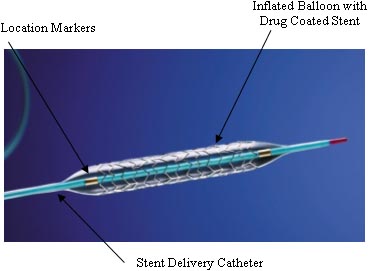Attn: Burt Cohen
Re: Stents Downgraded by Wall Street Journal: If Only It Were That Simple.
Dear Mr Cohen,
Like you I responded to the article “A Simple Health-Care Fix Fizzles Out” by Keith Winstein of the WSJ, dd 2/22/2010:
However, unlike you, I drew somewhat different conclusions:
RE: WSJ Simplifies Study Results by Ignoring Key Issues
... you define a problem, create a fix, test it and implement it. But figuring out how to diagnose and treat a specific patient involves juggling multiple moving targets while keeping on top of the latest research, findings and available tools: it’s what good doctors do… Precisely what good doctors should do and it should include accepting data that show the benefits as well as limitations of one treatment over another.
RE: Optimal Medical Therapy (OMT)
… personalized care that unfortunately is not readily available to many… True, but why? You write as if it is not the the doctor’s responsibility to implement OMT. If a provider can enforce the use of anti-platelet therapy, why not the rest? Is it because there is no incentive (ie reimbursement)? You worry about the additional costs of OMT, but surely it must be a lot less than the costs of recurrent disease to both the individual and society?
RE: 1/3rd of Patients Switched to Stents
… 1/3 of the patients who started with medical therapy crossed-over to stenting, mainly for symptom relief… True, but that still manages 66% with what matters most, life style, diet & exercise modifications. What is wrong with you? You talk about OMT as if it is a ridiculous concept that in the “real world” is not useable because doctors are too busy (putting in stents).
RE: Study included only Bare Metal Stents
Not true, 3% did.
RE: Very Limited Patient Selection — 90% of Candidates Rejected
Do you mean to say that no other published study has applied exclusion criteria? I think not.
RE: Pre-Testing No Simple Solution Either
… nuclear stress tests show a relatively large number of false positives or equivocal results, so those patients are sent to the cath lab for a diagnostic angiogram — yet 37% of patients who get diagnostic caths show no coronary artery disease... True, and your point about including CTCA is well taken, but what about Stress ECHO? All together pre-cath non-invasive testing can eliminate a lot more patients than the the 37% you just mentioned, who must have somehow “slipped by”.
RE: Guidelines Plus Individualized Medicine — More Effective than One Size Fits All!
… Certainly, some sort of decision-making, and discussion with the patient, before choosing stenting as the treatment is essential… (I certainly hope so)…And treatment with medical therapy and lifestyle change should be the first line. These are the guidelines agreed upon by …(your own)… professional societies…
I don’t quite know where to begin; a stable patient on medical therapy? What a novel concept! As a cardiac surgeon, there have indeed been situations where there was no time for in-depth pre-op evaluation. The same is true in certain other cardiac conditions, particularly in patients with unstable angina and/or STEMI. That still leaves the vast majority of patients with CAD with plenty of time to follow proper guidelines of treatment.
To dismiss these is not acceptable, no matter what the lack of incentive!
You obviously reached somewhat different conclusions than I did. I am interested in your reaction to my blog,
Doctor T,

